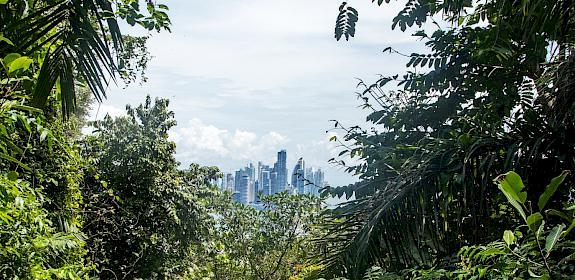One thousand tortoises a week illegally gathered in south Madagascar
Toliara, Madagascar, 30th September 2010—Ten or more zebu carts filled with around 100 terrestrial tortoises each are leaving the Mahafaly Plateau in south Madagascar every week, according to a survey conducted by WWF staff.

And while poaching of the endemic Radiated Tortoise (Astrochelys radiata) and the Spider Tortoise (Pyxis arachnoids) for the bush meat and pet trades is long established, ongoing political instability has seen a large jump in illegal collection.
Poachers are also now much more likely to be armed and dangerous, with Toliara area gendarmes suspecting a well established network behind the poachers now lies behind the trade.
Radiated and Spider Tortoises are among only four terrestrial tortoise species found in Madagascar and their range is limited to the unique but also under pressure southern spiny forest.
Some 7,855 living tortoises and more than 4.8 tonnes of meat were seized between 2001 and 2010—thought to represent around two per cent of an estimated 600,000 tortoises collected from the eco region during that period.
“The population decline of these flagship species is alarming,” said Tiana Ramahaleo, WWF’s Conservation Planning and Species Programme Coordinator in Madagascar.
“If we don’t manage to halt tortoise poaching and habitat destruction in the South, we might lose both tortoises in the wild in less than fifty years”
Radiated Tortoise meat is a delicacy for the Vezo and Antanosy ethnic groups in the south and people from the High Plateau around Madagascar's capital Antananarivo during special events such as Christmas, Easter and Independence Day—accounting for peaks in poaching for a few weeks before the festivals. To a lesser extent, radiated tortoises are killed after they invade crop fields in search for food.
A recent survey by WWF Toliara among 30 communities in the south western spiny forest shows that tortoise collection in the Plateau Mahafaly is still rampant. Tortoises are gathered in this area and sent to the main meat markets such as Toliara and Fort Dauphin for local consumption or to be smuggled out of the country.
Madagascar’s endemic tortoises are also highly sought after in exotic pet markets. TRAFFIC, the wildlife trade programme of WWF and IUCN, has found Radiated Tortoises and other threatened Malagasy species openly on sale in pet markets in both Thailand and Indonesia, while TRAFFIC also reports a number of occasions when travellers have been arrested with Malagasy tortoises in their luggage in the region.
Earlier this year, two Malagasy women became the first people charged and convicted under Malaysia’s tough new International Trade in Endangered Species Act 2008 after they were found with 374 tortoises, the majority of them radiated tortoises in their possession. Each woman received a one year prison term. There have also been a number of seizures from passengers at Madagascar’s international airport in Ivato.
“Such effective law enforcement action in Asia sends a strong deterrent signal to those involved in the illicit trade that this global problem is being tackled in an increasingly systematic manner,” said James Compton, Director of TRAFFIC’s Asia-Pacific Programme.
Tortoise habitat is also under threat from alarming levels of deforestation, with a study made in 2008 by Conservation International (CI) showing an increase in deforestation rates from 1.2 per cent annually 1999-2000 to nearly four per cent annually in some regions in 2000-2005. The main drivers behind such high rates of deforestation are slash and burn agriculture, bush fires and charcoal production for the towns of Toliara and Fort Dauphin.
WWF in Madagascar has been active in the spiny forest eco region since 1999.
“We managed to reduce deforestation rate by 27% where WWF works” says Ramahaleo
“And 4 theatre groups are touring the South raising awareness for tortoise conservation. Many villages have decided to forbid tortoise poaching and cooperate well with local authorities. Almost all seizures made so far were possible because of community members blowing the whistle”.
This year, WWF Toliara celebrated the Year of Biodiversity with a conference about their endemic tortoises. The objective was to raise awareness among the local population and animate them to conserve these emblematic species.
But even as WWF Toliara was holding this conference, participants received the breaking news: tortoise poachers had been arrested outside Toliara and 1,475 living tortoises as well as dry tortoise meat confiscated.
“For the next 5 years WWF will empower civil society and establish an information network in the south to help the police make sure tortoise trafficking does not go unpunished,” said Ramahaleo.
“We will also continue to development initiatives in the region to show people there are alternatives to poaching tortoises for an income.
“Last but not least, we are asking every single person on this planet not to buy endangered Malagasy tortoises as pets. If the demand for the Radiated and the Spider Tortoise on international markets is weakening, it’ll buy time to save them once and for all.”




